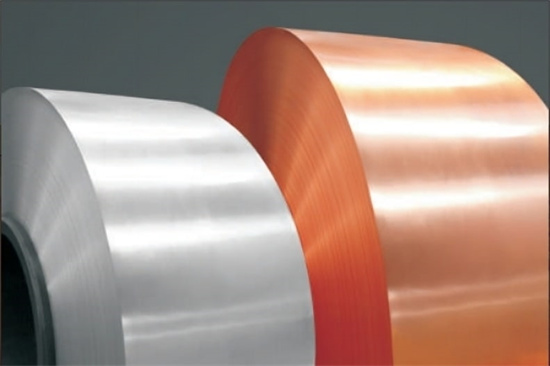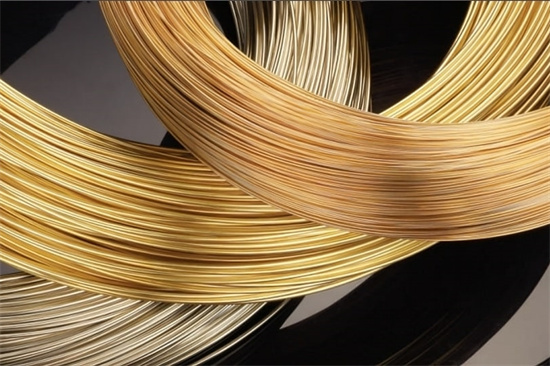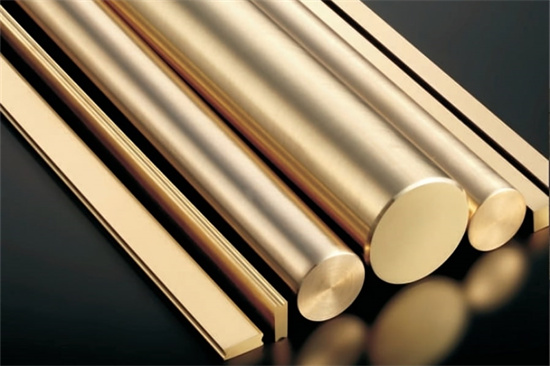


Why Copper Nickel Silicon Strips Are the Best High Precision Alloy
Low MOQ
Provide low minimum order quantity to meet different needs.
OEM & ODM
Provide customized products and design services to meet unique customer needs.
Adequate Stock
Ensure fast order processing and provide reliable and efficient service.
Customer Satisfaction
Provide high quality products with customer satisfaction at the core.
share this article
Table of Contents
When it comes to materials that blend strength, conductivity, and durability, Copper Nickel Silicon Strips are among the top choices in the industry. Known for their high precision and high performance, these strips are widely used in sectors where precision and reliability are non-negotiable. Whether you’re in electronics, automotive, telecommunications, or aerospace, Copper Nickel Silicon Strips offer a remarkable combination of properties that make them ideal for demanding applications.
In this guide, we’ll walk you through everything there is to know about High Precision High Performance Copper Nickel Silicon Strips—from their composition and properties to their specific use cases, standards, and pricing. So, if you’re asking questions like, “What makes this alloy special?” or “Where can I use these strips?”—you’re in the right place.
Overview
What Are Copper Nickel Silicon Strips?
Copper Nickel Silicon Strips are copper-based alloys that contain small amounts of nickel and silicon to enhance their mechanical properties, thermal stability, and wear resistance. These strips maintain high electrical conductivity while offering excellent strength and corrosion resistance—a rare combination that makes them suitable for high-performance applications across different industries.
Key Characteristics of Copper Nickel Silicon Strips
- High mechanical strength: These strips can endure high stress without deforming, making them perfect for springs, connectors, and terminals.
- Good electrical conductivity: Retains significant electrical properties while boosting strength.
- Wear resistance: With added silicon, the strips become more resistant to abrasion and wear.
- Thermal stability: Performs well even at elevated temperatures, making it a great choice for high-heat environments.
- Corrosion resistance: Offers excellent resistance to oxidation and corrosion, especially in marine and industrial environments.
- Formability: These strips can be easily machined and formed into complex shapes, making them ideal for precision components.
Composition and Properties of Copper Nickel Silicon Strips
The unique properties of Copper Nickel Silicon Strips come from their precise composition. The copper base provides natural electrical conductivity and heat transfer, while nickel and silicon enhance their strength, hardness, and wear resistance.
Composition
| Element | Percentage (%) |
|---|---|
| Copper (Cu) | 95.0 – 97.5 |
| Nickel (Ni) | 1.5 – 3.0 |
| Silicon (Si) | 0.1 – 0.5 |
| Other Elements | ≤ 0.1 |
Properties and Characteristics
| Property | Value |
|---|---|
| Tensile Strength | 450 – 850 MPa |
| Yield Strength | 350 – 700 MPa |
| Elongation | 10 – 25% |
| Hardness | 120 – 200 HV |
| Electrical Conductivity | 40 – 60% IACS |
| Thermal Conductivity | 180 – 320 W/m·K |
| Density | 8.8 g/cm³ |
| Melting Point | 1080°C |
Key Property Highlights
- Electrical Conductivity: The 40-60% IACS (International Annealed Copper Standard) makes these strips suitable for electrical and electronic components, where both strength and conductivity are required.
- Tensile Strength: With a tensile strength range of 450-850 MPa, these strips are strong enough to withstand mechanical stress in high-load environments like automotive and aerospace applications.
- Thermal Conductivity: The 180-320 W/m·K range ensures that Copper Nickel Silicon Strips are exceptional in thermal management, crucial in electronics and telecommunication systems where heat dissipation is vital.
Applications of High Precision High Performance Copper Nickel Silicon Strips
Thanks to their unique combination of strength, conductivity, and thermal stability, Copper Nickel Silicon Strips find applications in a wide range of industries. Let’s explore these applications in detail to understand why this material is preferred over other alloys.
Common Applications
| Industry | Typical Applications |
|---|---|
| Electronics | Connectors, terminals, springs, lead frames |
| Automotive | Battery contacts, sensors, relays |
| Telecommunications | Switches, relay contact strips, coaxial connectors |
| Aerospace | Heat sinks, high-temperature connectors |
| Marine | Corrosion-resistant components, fasteners |
| Industrial Equipment | Springs, wear-resistant parts |
| Consumer Electronics | Charging ports, circuit board components |
Expanded Application Insights
- Electronics: In the fast-paced world of electronics, Copper Nickel Silicon Strips are frequently used in connectors, terminals, and lead frames. Their ability to maintain high conductivity while offering superior strength makes them ideal for miniaturized components that need to perform reliably under constant use.
- Automotive: With the rise of electric vehicles and smart automotive systems, the demand for materials that can handle high electrical loads and harsh conditions has increased. Copper Nickel Silicon Strips are widely used in battery contacts, sensors, and relays because of their durability, corrosion resistance, and thermal stability.
- Telecommunications: In an industry where signal integrity and reliability are critical, Copper Nickel Silicon Strips ensure that components like switches and relay contacts perform consistently, even in high-frequency environments.
- Aerospace: Aerospace demands materials that are both lightweight and durable. Copper Nickel Silicon Strips provide the perfect balance for high-temperature connectors and heat sinks, ensuring that electrical systems remain functional even under extreme conditions.
- Marine Industry: The marine environment is highly corrosive, but Copper Nickel Silicon Strips offer excellent resistance to saltwater, making them ideal for components like fasteners and connectors used in ships and submarines.
Specifications, Sizes, and Standards for Copper Nickel Silicon Strips
When choosing Copper Nickel Silicon Strips, it’s essential to understand the available sizes, specifications, and industry standards. These strips come in various thicknesses, widths, and grades, allowing for flexibility in different applications.
Common Specifications and Standards
| Standard | Description |
|---|---|
| ASTM B422 | Standard specification for Copper-Nickel-Silicon alloys in wrought forms |
| EN 1652 | European standard for copper and copper alloy strip for general purposes |
| JIS H3130 | Japanese standard for copper and copper alloy strips |
| DIN 17666 | German standard for wrought copper-nickel-silicon alloys |
Available Sizes and Grades
| Form | Size Range (Thickness x Width) | Grade |
|---|---|---|
| Strip | 0.1 mm – 2.0 mm x 10 mm – 600 mm | CuNi2Si, CuNi1.5Si |
| Sheet | 0.3 mm – 4.0 mm x 100 mm – 1200 mm | CuNi1.5Si, CuNi2Si |
| Coil | 0.1 mm – 1.5 mm x 10 mm – 500 mm | Various grades |
Suppliers and Pricing for High Precision High Performance Copper Nickel Silicon Strips
The cost of Copper Nickel Silicon Strips varies based on factors like alloy grade, dimensions, and order volume. It’s also subject to fluctuations in the prices of copper, nickel, and silicon on the global market. Below are some common suppliers and their pricing structures.
Copper Nickel Silicon Strip Suppliers and Pricing
| Supplier | Location | Price Range (per kg) | Lead Time |
|---|---|---|---|
| Wieland Metals | Germany | €15 – €25 | 3-5 weeks |
| Shanghai Metal Corporation | China | $18 – $28 | 4-6 weeks |
| KME Group | Italy | €20 – €30 | 2-4 weeks |
| Aviva Metals | USA | $22 – $32 | 1-3 weeks |
| Mitsubishi Shindoh | Japan | ¥2000 – ¥3000 | 3-5 weeks |
Key Factors Impacting Pricing
- Alloy Grade: Higher nickel and silicon content can increase the price of the strips.
- Size (Thickness and Width): Thinner strips often command higher prices due to the precision required in their manufacturing.
- Order Quantity: Bulk orders typically benefit from discounts, while smaller quantities may have a higher per kilogram cost.
- Market Conditions: Fluctuations in the prices of copper, nickel, and silicon can also affect the cost.
Advantages and Limitations of Copper Nickel Silicon Strips
Like every material, Copper Nickel Silicon Strips come with a set of advantages and limitations. Understanding these will help you decide whether this alloy is the best fit for your specific applications.
Advantages and Limitations
| Advantages | Limitations |
|---|---|
| High strength: Ideal for high-stress environments. | Lower conductivity: Not as conductive as pure copper. |
| Corrosion resistant: Performs well in marine environments. | Higher cost: More expensive than standard copper strips. |
| Thermal stability: Retains properties at elevated temperatures. | Availability: Certain grades may have longer lead times. |
| Good machinability: Easy to form and machine into complex shapes. | Limited formability: Less ductile compared to pure copper. |
Comparing Copper Nickel Silicon Strips to Other Copper Alloys
When you’re deciding between Copper Nickel Silicon Strips and other available copper alloys, it’s essential to understand how they stack up in terms of strength, cost, conductivity, and corrosion resistance.
Copper Nickel Silicon Strips vs. Other Copper Alloys
| Alloy | Copper Nickel Silicon Strips | Cu-Be (Beryllium Copper) | Cu-Ni (Copper-Nickel) | Brass (Cu-Zn) |
|---|---|---|---|---|
| Strength | High | Very High | Medium | Low |
| Electrical Conductivity | 40-60% IACS | 20-60% IACS | 5-15% IACS | 25-30% IACS |
| Corrosion Resistance | Excellent | Excellent | Excellent | Moderate |
| Cost | Moderate to High | High | High | Low |
| Machinability | Good | Moderate | Low | Excellent |
| Thermal Conductivity | Medium to High | Low | Medium | Medium |
Key Takeaways
- Copper Nickel Silicon vs. Cu-Be: Cu-Be has higher strength but lower conductivity, and it’s also significantly more expensive due to the toxicity of beryllium. Copper Nickel Silicon Strips offer a better balance between cost, strength, and conductivity.
- Copper Nickel Silicon vs. Cu-Ni: Cu-Ni alloys provide superior corrosion resistance in marine environments, but Copper Nickel Silicon Strips offer better conductivity and machinability, making them ideal for electrical and electronic components.
- Copper Nickel Silicon vs. Brass: Brass is cheaper and easier to machine, but it lacks the strength and high-temperature stability of Copper Nickel Silicon Strips, making it less suitable for high-performance applications.
Frequently Asked Questions (FAQ)
Here are some of the most common questions about Copper Nickel Silicon Strips to help you quickly understand the key aspects of this material.
| Question | Answer |
|---|---|
| What are Copper Nickel Silicon Strips used for? | They are used in electronics, automotive, telecommunications, and aerospace industries for connectors, sensors, and springs. |
| Are Copper Nickel Silicon Strips corrosion-resistant? | Yes, they offer excellent corrosion resistance, especially in marine and industrial environments. |
| How do Copper Nickel Silicon Strips compare to pure copper? | While pure copper has better conductivity, Copper Nickel Silicon Strips offer much higher strength and wear resistance. |
| Can Copper Nickel Silicon Strips be machined easily? | Yes, these strips have good machinability, making them suitable for precision components. |
| What is the tensile strength of Copper Nickel Silicon Strips? | The tensile strength ranges between 450 and 850 MPa, depending on the grade. |
| Are these strips suitable for high-temperature applications? | Yes, Copper Nickel Silicon Strips retain their properties at elevated temperatures, making them ideal for thermal management. |
Conclusion: Why Choose High Precision High Performance Copper Nickel Silicon Strips?
If you’re looking for a material that combines strength, durability, conductivity, and corrosion resistance, Copper Nickel Silicon Strips are a top contender. These strips are widely used across industries like electronics, automotive, telecommunications, and aerospace due to their unique balance of properties.
From connectors and terminals to springs and sensors, Copper Nickel Silicon Strips deliver consistent performance in demanding environments. Whether you’re dealing with high temperatures, mechanical stress, or corrosive conditions, this alloy is designed to meet and exceed expectations.
By now, you should have a thorough understanding of High Precision High Performance Copper Nickel Silicon Strips. With this knowledge, you can confidently select the right material for your next project, ensuring optimal performance and long-lasting durability.
Maybe you want to know more about our products, please contact us
Get Latest Price
About Met3DP
Product Category
HOT SALE
CONTACT US
Any questions? Send us message now! We’ll serve your request with a whole team after receiving your message.

Metal Powders for 3D Printing and Additive Manufacturing
COMPANY
PRODUCT
cONTACT INFO
- Qingdao City, Shandong, China
- [email protected]
- [email protected]
- +86 19116340731








